
Adrián was born in Málaga (Spain) in 1991. He received a BEng in Industrial Engineering from the University of Seville in 2014. During his BEng he took tow majors: one on Automation and Robotics and another on Electronics.
While he was doing the 5th year of his degree he worked as a research assistant for the department of System and Automation. He researched the field of computer vision and wind forecasting and wrote his thesis supervised by Prof. Teodoro Álamo Cantarero about convex optimization algorithms apply to MPC for tracking.
Adrián enrolled onto a PhD in Heriot Watt University as part of the CDT in Embedded Intelligence in 2014.
The PhD project, co-sponsored by Moredun Ltd, was entitled “Smart sensors for detection of lack of appetite in cattle”. This project proposed to design, manufacture and test a smart sensor to be inserted in the collar or any other judicious places of cattle to detect the absence or reduction of mastication as a clinical sign of symptom of disease.
He graduated in 2018 and is now a Software Engineer at a private company.

Dimitris received his Diploma in Electrical and Computer Engineering in 2014, from the University of Patras, Greece. Following receiving his diploma, he worked for a short period as a visiting researcher at King Abdullah University of Science and Technology (KAUST), KSA. Afterwards, Dimitris joined the CDT in Embedded Intelligence at the University of Loughborough, UK, in 2014.
Other previous work experience includes working as an electrical engineer for Hellenic Petroleum S.A. and as a website designer and developer for Odotechniki L.T.D.. His main research interests include embedded systems, wireless sensor networks and data mining techniques.
His PhD research project theme was related to Machine-to-Machine (M2M) Wireless Intelligence, aiming at using and advancing embedded intelligence in mobile devices in order to design and further develop mobile intelligent services for manufacturing. It was co-sponsored by the High Speed Sustainable Manufacturing Institute (HSSMI).
During the final year of his PhD he pursued his entrepreneurial interests and he co-founded and became Technical Director of a start up company.
He graduated in 2019 and continues working as an entrepreneur, ans more lately as a software engineer at a private company.

I completed my undergraduate Masters at Loughborough University in Mechanical Engineering in 2014 having also taken a placement year where I worked at Perkins Diesel Engines.
My PhD project was co-sponsored by Taylor Hobson as part of the CDT in Embedded Intelligence at Loughborough University and I started it in 2014. I researched techniques for Coherent Measurements of Surface Geometry on a Large Scale. The aim of the research was to use coherence measurements of large engineering surfaces, such as turbine blades, to detect defects in the order of the wavelengths of light. The method proposed for this application was aperture synthesis using multiple digital holographic recordings.
I graduated in 2018 and before finishing my studies I was headhunted by a provate organisation as a consultant and principal engineer.

Joe received his MPhys in Astrophysics from the University of Liverpool in 2010. Following this his interests turned towards energy efficiency and sustainability and he undertook an MSc at the University of Nottingham studying Sustainable Energy Engineering. He graduated from Nottingham in 2013. Shortly after Joe began working as Technology Development Manager at Far-UK where he worked within the Collaborative R&D team. Joe was co-sponsored by his employer, Far-UK, to undertake a PhD as part of the CDT in Embedded Intelligence at Loughborough University.
The aims of the PhD project were to develop and model the manufacturing process to produce variable porosity foams using sonication. These variable density materials have a range of potential structural applications from automotive to biomedical.
My thesis proposed a method using directly coupled ultrasound as a tool to modify the localised porous structure of thermosetting polymeric foams. This method produced heterogeneous internal structures inside the samples, observed using x-rays. Alongside this I developed new characterisation techniques to monitor the degree of cure and structural evolution of the foam as it cures.
My PhD through the CDT-EI was a long and challenging experience, but a very rewarding one. I have learnt countless new skills, engaged with many interesting people and gained the abilities I need to go on and excel in my future career. The exposure to both academia and industry through the programme has allowed me to identify my strengths and weaknesses but also what I enjoy doing and what I don’t.
Joe graduated in 2019 and went onto being employed as a Development Engineer working in the same topics that he had studied for his PhD.

Mohamed holds a BSc of Computer Engineering from Al-Azhar University in Cairo (Egypt). He was an exchange student at University of Arkansas, USA where he did an internship and at Nanyang Technological University in Singapore. He then worked for two years in a Research Center in Italy in a EU funded project in the field of Smart Mobility, where he won several competitions and awards in the field of computer science and mobility as a student and while he was working.
In 2015 he enrolled on a PhD project co-sponsored by BMW at Loughborough University as part of the CDT in Embedded Intelligence entitled "Driver State Modelling in Partially Automated Driving Cars". He graduated in 2019 and went onto pursue his interests in AI and data science solutions for IoT companies and founded his own company. Since then, he has been working as an entrepreneur and as an academic at a University in Egypt.

Pawel Ladosz graduated with an MEng in Aerospace Engineering from the University of Manchester in 2014.
As a student, Pawel was president of Unmanned Aerial Vehicle (UAV) Society and Pear Assisted Study Scheme leader. Additionally, he was involved in two summer projects, the first one involved measuring atmospheric O3 using a UAV and second one focused on the design of a solar powered UAV.
He started his PhD project at Loughborough University in 2014 as part of the CDT in Embedded Intelligence. His PhD project was on UAVs, their safety, control and design.
He spent periods of time at various companies and Universities during his PhD studies to gain more skills. He graduated in 2019 and has been a Research Associate at Universities in the UK and abroad. He is now an academic in the UK.

Adam received an undergraduate MSci in Mathematics from the University of Bristol in 2015.
His PhD project in the CDT-EI in Loughborough University co-sponsored by Printed ELectronics Ltd, was entitled 'Ink-Jet Printing Antennas on 3D Curved Surfaces', and Adam employed his time to expand on his research interests which include direct-write manufacture, surface topography, and antenna design.
He graduated in 2023.
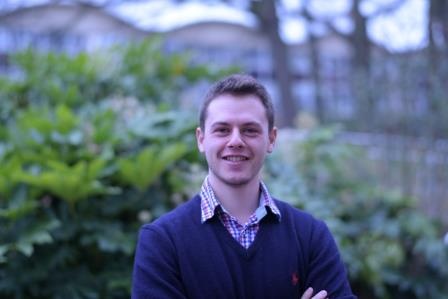
I graduated from the Department of Electrical and Computer Science Engineering at the Aristotle University of Thessaloniki in Greece. Along with my studies, I was involved in extracurricular activities. From October 2012 to September 2015, I was a member of two Formula Student teams and was involved in many activities. I was a finite element engineer in a Formula Student team called ART and, after a year, became cofounder of a new established FSAE team called Aristurtle. During my internship period I gained more experience in the field of automotive as I worked for three months at Silberform, an upcoming company located in Stuttgart. Particularly, during my training, I learned how to design with software Catia V5 and I participated in many projects. Mainly, I was responsible for designing an adjustable hydraulic system for the wheel axis and an electric drive system of an expedition Porsche chassis.
My PhD project, which I started in 2016, studied the monitoring of Resin Transfer Moulding (RTM) processing parameters. RTM is one of the most promising available technology for manufacturing large complex three-dimensional parts from composite materials with high mechanical performance, tight dimensional tolerance and high surface finish. Some of the parameters that affect process and quality of the finished product are flow and cure of the resin. Nowadays, finite element simulation is regularly used to design injection processes and cure. However, purely predictive simulations suffer from issues related to uncertainty and variability in material state and numerous process parameters. Online monitoring of resin flow in tests is a method that can enhance fidelity of numerical simulation models. My PhD outputs for the monitoring system of this process combines dielectric sensors with thermocouples to provide information about frontal flow and the degree of cure of the resin.
This project was co-sponsored by TWI. Igraduated in 2020 and I have been a Postdoctoral Research Fellow at various UK and European Universities since.
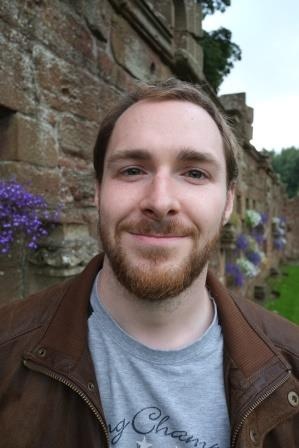
David received a BEng in Electrical and Electronic Engineering for Heriot-Watt University in 2015. His Undergraduate dissertation was focused on the automatic detection of vessels in a maritime environment from video images. His areas of interest include embedded systems, sensors, robotics, and microsystems and she enrolled into the CDT in Embedded Intelligence at Heriot-Watt University to pursue those interests, as well to design and develop galfenol plated devices for the remote sensing and positioning of objects.
The project was co-sponsored by Renishaw. I graduated in 2019 and I was headhunted swiftly shortly after by a private company to work as a R&D Software Engineer, where I still work.
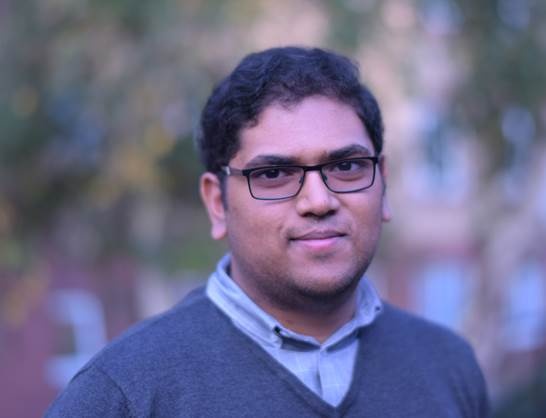
I have always had an interested in Mathematics and Physics, being able to apply my theoretical knowledge into practical applications has been a strong ambition. After successfully completing a degree in Mechanical Engineering (MEng) I found myself very fond of the automotive industry. For my PhD I secured a project in the CDT-EI co-sponsored by AVL, who specialises in power and drivetrain simulation and testing and are based in Austria, Gratz. I started my PhD work in 2016.
The main goal of the project was to develop a multi-physics numerical model to analyse the tribo-dynamics of bevel gears. The automotive industry is growing and with strict global emission regulations being put in place, it is important for automotive manufacturers to adhere to the regulations and meet customer satisfaction. Being able to fully understand the lubrication of gears is highly desirable as friction losses contribute to high exhaust emissions. It is also important to understand the dynamics as interacting physics with lubrication. In addition, it is the measure of noise, vibration and harshness (NVH) refinement. The project outputs will contribute to deliver the required predictive and analysis tool to tackle abovementioned issues.
I graduated in 2021 and I have been working as a Research Engineer at one of the Catapults since.
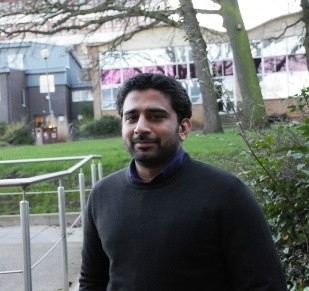
Jamal has a Bachelors in Mechanical Engineering from University of Engineering & Technology, Lahore (Pakistan) where he joined the same department as lecturer in Nov-2009 after completion of his undergraduate studies. He completed his Masters in Engineering Rhelogy through an Erasmus mundus masters scholarship from KU Leuven Belgium, Uminho Portugal and ULj Slovenia in 2012. He then took a study leave from UET Lahore to pursue doctoral studies at Loughborough University as part of the CDT in Embedded Intelligence in 2015.
Jamal's PhD project involved working in the field of tribology, optimising the lubricant surface system to improve internal combustion engine efficiency. Various experimental techniques were required to investigate the fundamentals of friction from the nanoscale through to macro scale effects observed at system level. The PhD co-sponsor was Castrol and he graduated in 2019.
After graduation, he gained further experience as a Post graduate researcher at Loughborough University and then he moved back to his home University in Pakistan to become an academic.

Melanie studied at the University of Applied Sciences in Stuttgart, where she achieved her BSc in Mathematics in 2013 and her MSc in Software Technology in 2015. She wrote her Masters thesis while working at the High Speed Sustainable Manufacturing Institute (HSSMI) on data visualisation towards an augmented manufacturing reality.
Melanie joined HSSMI as a full-time employee Engineer after finishing her Masters degree, where she worked on various research and commercial projects.
Melanie joined the CDT in Embedded Intelligence Centre as a PhD student in October 2015. Her PhD research project was co-sponsored by HSSMI. The intention of her PhD proejct was to improve the energy efficiency of an assembly system based on information acquired and actions taken during production ramp-up. Therefore, a decision-support framework was developed to support a human operator to make energy saving adjustments during that phase. This required to capture process and equipment settings in combination with energy consumption data. This research aimed to develop a model for ramp-up that will allow to represent the entire system, its processes and equipment adjustments, as well as the corresponding energy consumption. Additionally, this work investigated how human knowledge can be captured and machine learning techniques can be used to recommend potential energy saving opportunities to the user.
She graduated in 2021 and her research interests in sustainable manufacturing, machine learning and decision support took her to Germany where she was employed as a Software Engineer very shortly after her graduation.

In 2015 I graduated from Imperial College London with an MSci Physics degree. During my final year I was involved in a project to control the temperature of a sensor for a geostationary satellite. The Masters’ project required me to produce a thesis enitled 'Thermostatic Temperature Control of a Magnetoresistive Sensor'. The project was insightful and confirmed my interest in instrumentation and control theory, which is why I chose to do a PhD in control engineering unde the CDT in Embedded Intelligence at Loughborough University. My PhD project investigated optimal transducer configurations, within diesel engines, using control systems.
I finished my PhD work in 2020. After graduation I stayed in academia as a Research FEllow where I have been able to put to practice the skills that I gained during my PhD.
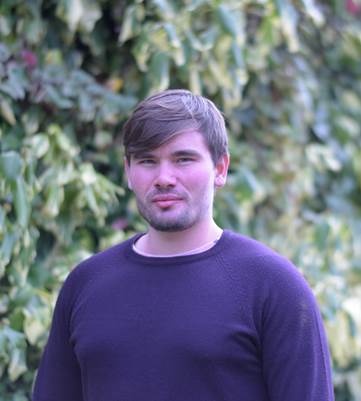
Robert graduated in B.Eng. (Hons) Mechanical Engineering in 2014 and on a M.Sc. in Mechanical Engineering in 2015. During his undergraduate years Robert completed a placement year at Babcock Marine and Technology where he worked in component design and analysis.
He enrolled on a PhD at Loughborough University as part of the CDT in Embedded Intelligence in 2015. His PhD researched the elastohydrodynamic lubrication in piston-ring pack assemblies, the frictional losses and the dynamic effects of the piston ring pack, which are two of the most important considerations in engine design are fuel efficiency and emissions. The piston ring pack accounts for a disproportionate amount of the total engine losses (up to 25% of parasitic), especially when considering the size of the component.
The multitude of vehicles utilising the internal combustion engine globally provides the foundation of the engineering motivation behind this study, with the penultimate objective being an increase in efficiency coupled with a reduction in emissions.
My PhD project was co-sponsored by AVL in Austria and I graduated in 2020.
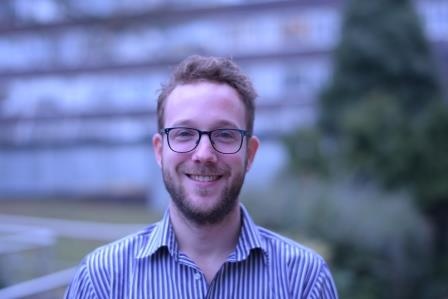
I hold a BSc and MSc in Industrial Design engineering from the University of Twente, Netherlands. My MSc track was on Emerging Technology Design. For my BSc and MSc theses I researched Hybrid Design Tools under supervision of Robert Wendrich from Rawshaping Technology.
Subjects of research involved real-time bimanual interaction in a 3-D mixed reality, as well as interaction enhancement using Automatic Emotion Recognition from motion in a design setting.
In 2015 I enrolled onto a PhD at Heriot-Watt University, as part of the CDT in Embedded Intelligecne. My PhD research involved the "Development of an ontology in biomimetics using concepts of classical problem solving". The research was multi-disciplinary and included subjects from biology, engineering and computer science.
I graduated in 2020 and I have been a Postdoctoral Researcher in various UK Universities.
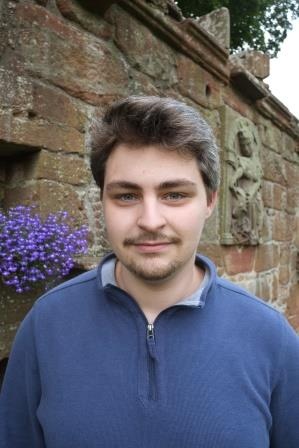
In 2015, I completed my MEng Aerospace Engineering degree at the University of Leicester and decided to move on to a PhD in Metrology at Loughborough University as part of the CDT in Embedded Intelligence. This was a direct result of working for the metrology company Etalon AG where I experienced the high-end engineering work that goes into metrology design first hand.
My PhD title was “High-speed micro 3D metrology” and it was co-sponsored by Renishaw. The aim of the research was to develop and build a novel sensor which is capable of accurately measuring surfaces, and potentially the internal 3D structure of a transparent media, in a single exposure. This could potentially eliminate the need for mechanical scanning as used in conventional scanners.
I graduated in 2020 and I very shortly was headhunted by a company in Germany as Head of Production and Support where I have been since.

I graduated from Loughborough University in the summer of 2016 with a MChem degree. My Masters project was entitled ‘(Poly)aromatic Hydrocarbon Based Organophosphorus Complexes for Sensing Applications.’ This project introduced me to a number of applications of phosphorus chemistry, as well as developing my synthetic skills, leading to my decision to undertake this PhD project.
I started my PhD degree in the summer of 2017 co-sponsored by Solvay as part of the CDT in Embedded Intelligence. I worked on the improvement of and monitoring of the production of textile flame retardants.
After I graduated in 2021, I was very shortly after employed as a Chemical and Textile Development Manager given the skills i had acquired during my PhD and the industrial connections this allowed me to establish.

I graduated first of my class in my Bachelor degree in Cyprus in Mechanical Engineering in 2015. My Bachelor's thesis was a group project about “Synthesis of N-Type and P-Type Semiconductor Materials by Solution Processing Methods” and it is one of its kind. Then, I completed my master degree in Advanced Control and System Engineering in University of Sheffield. My Master's thesis focused on “Feather-like Sensor for Stabilizing Unmanned Aerial Vehicles in Turbulent Conditions” and I had introduced a completely new approach of stabilizing UAVs under turbulence.
I started my PhD in 2016 at Loughborough University as part of the CDT in Embedded Intelligence. It focused on bi-pedal robots made from new a kind of actuators that uses less energy and are lightweight. The actuators are controlled from machined learning algorithms and deep learning in order to imitate the walking process of humans. My project was co-sponsored by a SME Motion Robotics Ltd.
I graduated in 2021 and my research interests led me to become involved in disciplines that combine bioinspiration and mechanical engineering. I still enjoy working with robots and programming.
After graduation I joined Numatic International as a Lead Software Engineer.
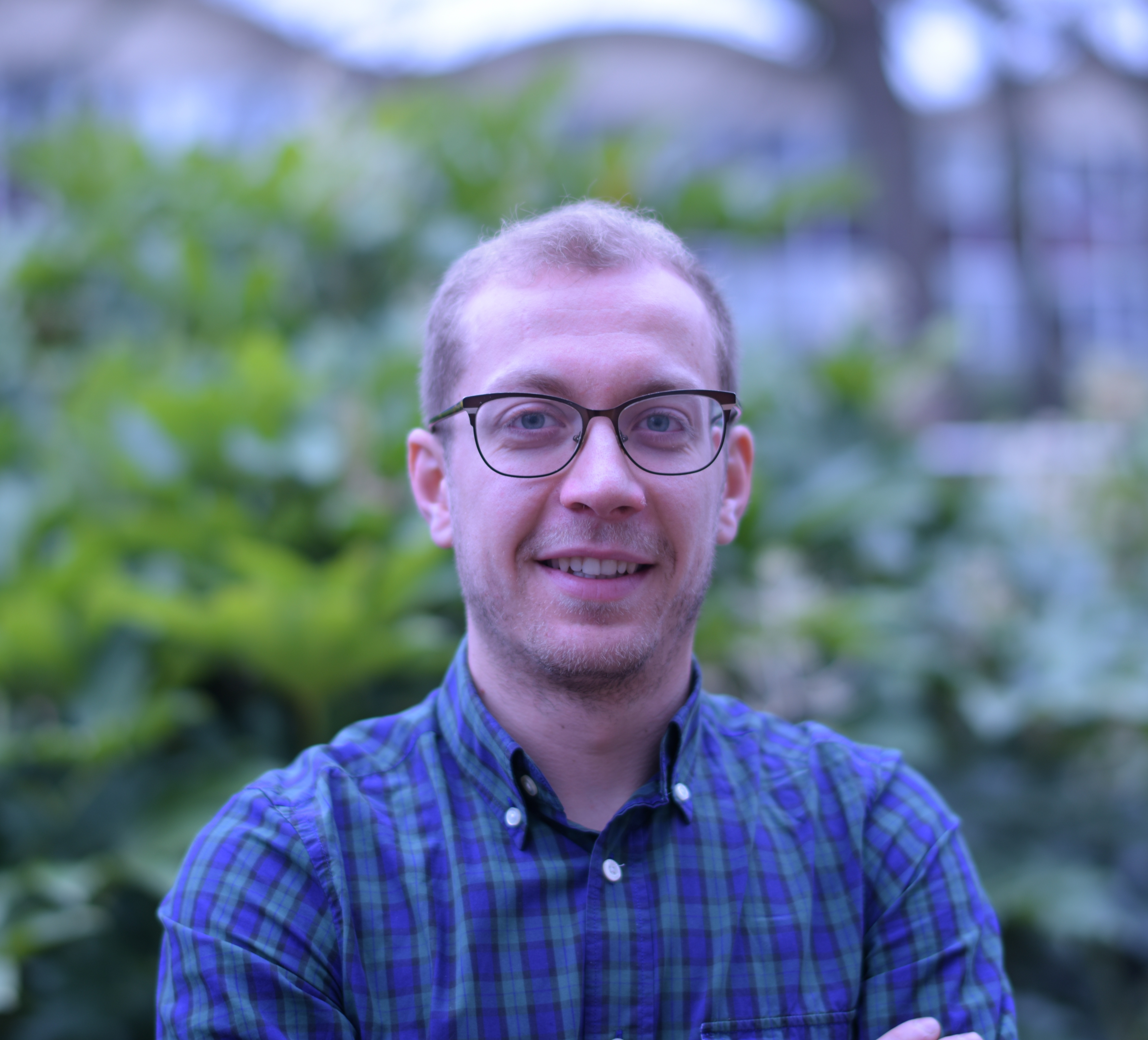
Darius was a PhD researcher as part of the CDT in Embedded Intelligence based at Heriot Watt University, studying Prognostics and Health Management from Big Data.
Prior to joining the Smart System Group at Heriot Watt University in 2016, Darius worked as a Design Verification Engineer in the Oil & Gas industry where he was responsible for FEA analysis and modelling of high pressure equipment.
He holds a 1st class MEng Degree with joint honours in Mechanical and Electrical Engineering from the University of Aberdeen. During his studies, he joined the Institute of Robotics and Intelligent System (IRIS) at ETH Zurich as a visiting researcher where he developed a novel Catheter Cleaning Microrobot. During his final years of Master studies, Darius also developed an algorithm for the selection process of airfoils used in wind turbine rotors in order to improve their efficiency.
His PhD research project as a CDT-EI member aimed at using a fusion prognostics approach bringing together modelling, condition monitoring, and machine learning techniques to predict the remaining useful life in drill strings. The project was co-sponsored by Baker Hughes.
Darius graduated in 2021. His extensive experience and developed skillset in machine learning and artificial intelligence techniques as well as prognostics and health management for remaining useful life estimation has led him to pursue a different career to that in Research. He is an entrepreneur at heart and in 2021 he started up his own company.

Gergely received his BSc in Electrical Engineering with Microelectronics specialisation at Budapest University of Technology and Economics. He won an Erasmus Mundus scholarship for the Smart Systems Integration Master course in 2014 and graduated with distinction from Heriot Watt University in 2016.
Gergely did his PhD at Heriot Watt University as part of the CDT in Embedded Intelligence betwen 2016 and 2021. The goal of his project, co-sponsored by Cirrus Logic, was to offer additional smartness to a MEMS microphone through embedded intelligence. In particular the additional functionalities covered the following attributes:
- Multimodalities – additional sensing capabilities such as RH or T.
- Monitoring of the microphone lifetime.
- Increased lifetime of the microphone allowing the device to fail graciously whilst being able to extract the relevant information through modification of its inputs.
- Self test capability before and/or after assembly to simplify the current testing procedure.
After graduating in 2021 he joined Pyreos as an Application Engineer.
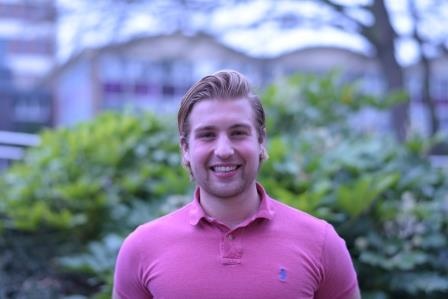
I graduated from the University of Kent in 2016 with a first class degree in Electronic and Communications Engineering. Throughout my undergraduate studies I was able to develop my interests in a lot of aspects of electronic engineering whilst also completing projects involving: Robotics, the Internet of Things, big data and energy harvesting. I also gained a strong interest in communication networks, particularly regarding mobile systems and antenna.
I started my PhD project in 2016 as part of the CDT-EI at Loughborough University. My project involved the development of a next generation electronic bike whilst also integrating smart cities technology into the system. This could help reduce the increased reliability of fossil fueled vehicles whilst also tackling major challenges regarding integrated mobility.
I graduated in 2021. The CDT presented me with exciting opportunities to develop and network with others, as well as to develop my skills and acquire new ones. These have proven very useful because I have worked as a Software Developer from the day I finished my studies and I have not stopped since.
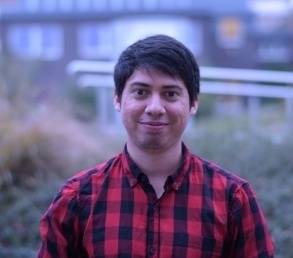
In 2013 I got a Bachelor degree in Electronic Engineering from The Institute of Technology of Culiacan. My thesis project was 'Photometer for Cylindrical Scanning'; it consisted on build an illumination sensor to characterize the irradiance pattern of different light’s sources and make the algorithms to process and display all the collected data on a user’s interface.
In got an MSc in Optics at the Optical Research Centre in Leon, Mexico in 2015. My project was 'Digitization of Solids Through Structured Light' where I learned different techniques of optical profilometry using methods like phase shifting interferometry. Additionally, I specialized in digital filter design and phase unwrapping algorithms.
I enrolled in a PhD degree at Loughborough University under the CDT in Embedded Intelligence Centre. My PhD project focused on Synthetic Aperture Interferometry, which had the aim demonstrate novel optical instrumentation for high-resolution inspection and precision measurement of large engineered parts.
I graduated in 2021 and I joined Heriot-Watt University as a Research Associate.

I graduated in Electronic Engineering in 2014 at University of Rome “Tor Vergata” with a dissertation about the development of a telemetry system for a racecar. After a brief parenthesis in which I worked as a consultant in a Test Engineering team for Capgemini, I enrolled on an MSc in Embedded System at Heriot-Watt University, Edinburgh for which I received a Distinction grade in 2016 with a dissertation studying the use of battery management systems on mobile autonomous robotic applications.
I started my PhD in 2016. My PhD studied the development of a new generation eBike. It involved the design of a vehicle that aims to achieve a new level in terms of interaction and understanding of the user demands and needs. The project covered a wide range of subjects from machine learning to smart cities integration, from pure mechanics to control theory. What we hope to realise was not just a bike that helps you commute from A to B, but a device that can bring you a step into the future.
I graduated in 2020 and I went on to work as a data analysist specialising in machine learning and IT/OT connectivity, with the aim of implementing smart factories and intelligent manufacturing in the near future.
After my PhD in CDT-EI, I have a solid and wide knowledge in Electronics with a particular attention to digital systems. I had the chance to study and learn the basic of Control Theory and its application with bio-inspired solutions such as Neural Networks. I have a very good knowledge of Embedded System both in their hardware and software applications. I enjoy programming particularly oriented to hardware. My previous experience has given me a good knowledge of automotive technologies and solutions.

I studied my undergraduate degree in Chemistry (BSci) at Loughborough University, graduating in 2016.
During my undergraduate degree, I also completed a placement at Reckitt Benckiser where I worked in the health innovation department working on feasibility projects for Nurofen, Gaviscon, Mucinex and Strepsils.
In 2016 I stated my PhD co-sponsored by Izon Science Ltd as part of the CDT in EI. My research project spanned the fields of Nanochemistry and Nano-analysis, focusing primarily on nanopores and their behaviour. The outputs of my project were the development of nanopores for selective single molecule detection and characterisation.
I graduated in 2021 and I joined a a spinout business from Loughborough University as their Head of Manufacturing. The company used the novel technology to characterise nanomaterials, proteins, heavy metal ions, colloids, bacteria, and algae in a range of solutions from sea water, to blood and beverages.

I graduated from Durham University in 2015 with a Masters degree in Chemistry. As part of my degree I completed an Industrial Masters project on magnetic nanoparticles for MRI at High Force Research Ltd. During this project I developed the methods used for synthesising the nanoparticles, aiming to improve efficiency, reduce cost, and gain a deeper understanding of the chemistry behind the process. This sparked an interest in product and process development and collaboration between research and industry, which led me to the CDT in Embedded Intelligence.
I started my PhD project in 2016 co-sponsored by EffecTech Ltd. It involved research into novel methods of LNG (liquefied natural gas) measurements in order to overcome some of the challenges facing LNG production. The outputs from my research will help to reduce errors and uncertainty, and also provide accurate data to help improve health and safety, commercial, contractual and environmental aspects of the LNG value chain.
I graduated in 2020 and I was employed by my PhD co-sponsor as a Technical Sales Engineer.
The CDT-EI was a fantastic opportunity for me to strengthen my technical knowledge as well as develop valuable transferable personal and business skills.

I graduated from Loughborough University in 2016 where I gained a 1st class degree in Ergonomics (Human Factors) Design.
I have always been fascinated with a means to sustain an ever growing population's energy demands. By chance, during my final year, I developed an interest in Systems Ergonomics, which coupled with my own personal interests, naturally lead me to pursue a PhD through the CDT-EI, co-sponsored by EDF energy.
I started my PhD in 2016. My PhD concentrated on systems safety within the nuclear industry, more specifically, a new theory of safety called safety-II. This theory states that by looking at what goes right within a system, you can understand what will go wrong before it even happens. The eventual aim was to implement safety-II principles into different areas of the nuclear industry to make it a safer industry, with the hope that the public are more accepting of the relative risk to benefit of nuclear energy.
I graduated in 2022 and I have been a Hman Factors Consultant since, utilising the skills I honed during my CDT-EI PhD, both technical and commercial.

I graduated in 2014 from the University of Edinburgh with a BEng degree with joint honours in Electrical & Mechanical Engineering. I then went on to study for an MSc in Renewable Energy & Distributed generation at Heriot Watt university graduating in 2016. My MSc dissertation was entitled “Control Algorithms for Distributed Energy Demand Response”, and dealt with the control of large collections of devices to provide demand response services to the electricity grid.
In 2016 I enrolled in my PhD degree at Heriot-Watt University. The project aimed to use fusion prognostic methods for analysis of condition monitoring data from maritime assets, essentially dealing with predicting failure of system components. This project was co-sponsored by MacTaggart Scott and it generated accurate and useful information and allowed predictions about the condition of operational maritime assets including “remaining useful lifetime” metrics. The outcomes of my PhD project had a focus on the high value mission critical hydraulic systems manufactured by MacTaggart Scott.
I graduated in 2021 and I have since worked as a Performance Data Analyst for a private company.
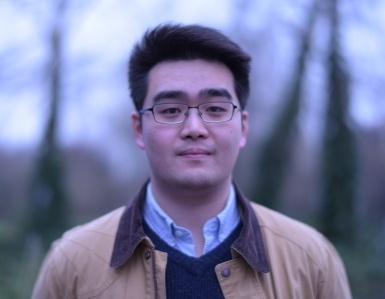
I graduated from Loughborough University in 2016 with an MSc Engineering degree. My MSc project focused on the design cycle based air fuel ratio and blow-through estimator. This experience exposed me to control theory and simulation, and I realised this is what I want to work on in my professional career.
I enrolled on a PhD degree in 2017 in those topics around control engineering to deepen my knowledge and improve my skillset. My PhD project focused on the development of a supervisory controller for a geographically distributed hybrid vehicle.
I graduated in 2021 and I work now as a Control Systems Simulation Engineer for a private automotive company.
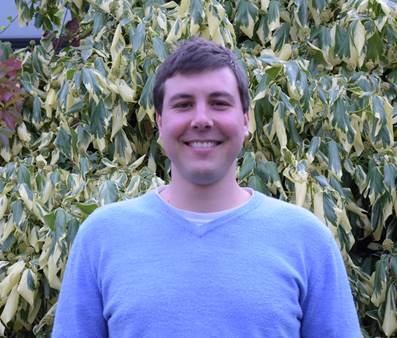
I completed my MSc. in Mechanical & Manufacturing Engineering in May 2014 at the French University Arts et Metiers Paristech (ENSAM).
I then did the Edison Engineering Development Program with GE Measurement & Control in Leicester, UK. EEDP is a two-year technical leadership development program consisting of three rotational assignments as well as development and leadership skills. Rotational assignments are engineering projects driven by real Measurement & Control / Oil & Gas business priorities.
I joined GE Druck in Leicester as a pressure sensor manufacturer and in 2016 I enrolled on a PhD degree at Loughborough University co-sponsored by my employer. The research I carried out during my PhD was on the effect of packaging elements on MEMS pressure sensor hysteresis. Their application is to monitor liquid and gas systems for many industries including automotive, subsea, aerospace and industrial. The sensors need to interact with the physical stimulus and measure pressure inputs, while being protected from their harsh thermal, electrical, chemical and mechanical operating environment, in order to avoid damage to delicate components. In addition, electrical signal outputs need to be passed in and out of the sensor to monitoring equipment.
The PhD project explored new materials and methods for the packaging and interconnection of the sensing technology for efficient manufacture while ensuring the integrity of the device is maintained and that it continues to remain reliable in service.
I graduated in 2021 and I continued working at GE-Druck as a MEMS Packaging Engineer.
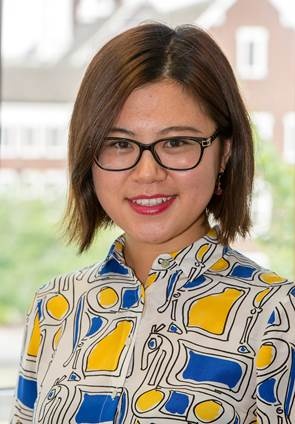
In 2014, Zhao (Orange) graduated from Dalian Maritime University in China with a degree in Software Engineering that she studied between 2010 - 2013. During her final year, she was offered the opportunity to complete her final undergraduate year at Loughborough University (2013 - 2014).
For her final project, Zhao designed an application for an Omani company to detect air pollution through image processing. Between her Undergraduate and he Master’s courses, she undertook an eight-week paid R&D project at BP and contributed towards a VR-based training tool for oil rig workers. BP took this work forward to a further stage in collaboration with Loughborough University, which applied for a Knowledge Transfer Partnership Grant.
The following year, Zhao completed a Master’s Degree of Advanced Computer Science, and in 2016 she enrolled onto a PhD project under the CDT in Embedded Intelligence. Both her Master’s and he PhD projects were co-sponsored by Apical Ltd. In her Master's work she combined the output of all the sensors in a mobile device in order to predict user behaviour and the environment, to enable the device to respond accordingly.
For her PhD project she developed video resolution upscaling algorithms that intelligently adapt to video scene content, environment in which the videos are viewed and devices used for display.
Even before she graduated in 2020, she was already working as a Applied Scientist for a large corporation.

I completed an MEng in Product Design Engineering at Loughborough University in 2017 and also undertook a placement year at J C Bamford Excavators Ltd where I experienced three different roles in Research, Design and Development. I also held a placement at Underhill Engineering Ltd where I worked in Engineering Operations.
I started my PhD degree in 2017 co-sponsored by J C Bamford Excavators. The aims of my PhD were to investigate feasible applications for SMART systems in excavations which will ultimately improve safety and productivity overall.
I graduated in 2023 and I work now as a Machine Learning Engineer and Data Scientist.

In 2017 Lucas graduated from the Technical University Bergakademie Freiberg, Germany as a Petroleum Engineer (Dipl. Ing.). Holding a 1st class degree, his studies focused on drilling and production engineering tasks. During a term abroad at the National Chung Hsing University (NCHU), Taiwan and multiple internships in companies, he became acquainted with numerical modelling and data processing. Within the scope of his final undergraduate thesis, Lucas developed an improved approach to forecast hydrate formation and a novel method to supress the formation of hydrates during gas expansion. Both aspects where implemented into a software application, enabling field engineers to evaluate on-site the problems hydrate formation may cause.
He enrolled in a PhD degree as part of the CDT in Embedded Intelligence at the Smart Systems Group at the Institute of Sensors, Signals and Systems (ISSS) at Heriot-Watt in 2017. His PhD project targetted the key elements of Condition Based Monitoring (CBM) and Prognostics and Health Management (PHM) of Critical Assets. During the project and research various approaches were utilized and applied to the critical assets of the drill string, which is particularly exposed to a harsh environment making prognostics a decisive factor to allow for undisturbed operations.
Lucas graduated in 2022 and was emplyed by his PhD co-sponsor Baker Hughes as a Data Scientist.
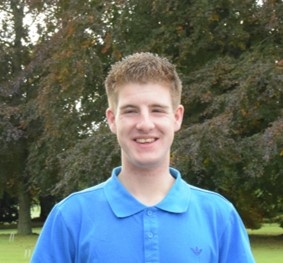
I graduated from Loughborough University in 2017 with a Masters in Chemistry (MChem).
During my 4th year Masters project entitled “Novel Chemical Forensic Techniques", I was able to review current forensic techniques used to detect fingerprints, while attempting to develop my own novel techniques to address the issues currently faced by forensic scientists. I was able to use transition metal ions as well as fluorescent materials to develop latent fingerprints on a variety of surfaces with a good degree of repeatability.
I then enrolled on a PhD as part of the CDT in Embedded Intelligence in 2017. The main aim of my PhD was to investigate the minimum amount of conformal coating required to insulate circuit boards in order to increase efficiency and lower costs. I predominantly used polyurethane and epoxy resins as the comforming materials.
I graduated in 2022 and I continue to work at Loughborough University as a member of staff now.

I completed a five-year Diplom (combining Bachelor and Master into one degree) in Traffic Engineering at TU Dresden (Germany) in four years, including studying and working one year abroad to gain international research experience at the University of British Columbia, the University of Calgary, Loughborough University, and the University of Queensland. My PhD as part of the CDT-EI focussed on the development of a next generation eBike which is integrated into a smart city.
I graduated in 2022 and I now work in Anglia Ruskin University as a Research Fellow.
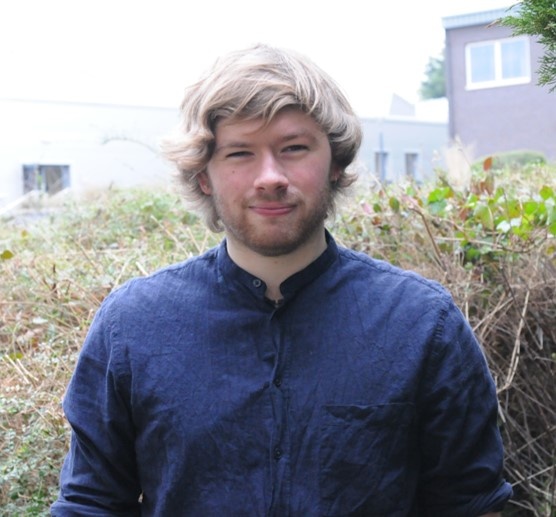
I graduated from Brunel University with a 1st class honours BSc in Product Design with Professional Practice in 2015 and after a year in industry I completed a 15 months MA in Interaction Design at Goldsmiths, University of London, graduating in December 2017.
My PhD was co-sponsored by Ordnance Survey and intended to investigate using embedded sensors in mobile/wearable devices to provide customised navigation support and enhanced digital maps through crowdsourced information.
I combined my design, electronics and coding skills with critical and speculative thinking and methods to produce works and writing that create debate around and explore design research and its outcomes.
I graduated in 2023 and I continue to work in User Experience and Digital Creativity as my research topics.

I hold a MChem Chemistry degree from Loughborough University and graduated in July 2017. During my undergraduate degree I experienced two summer placements with Airbus where I was able to experience the industrial use of chemistry in a large engineering company.
I started my PhD degree in 2017 co-sponsored by Innospec. My PhD research was on developing understanding and optimising the synthesis of reactive acid chloride intermediates. I graduated in 2021.
The industrial experience I have had in my studies, in particular during my PhD, made me discover that I want to work in Client Management in analytical companies as well as pharmaceutical and Biotech SMEs for drug discovery and development.

In 2015, I completed my BSc in Mathematics at Coventry University. The degree had a large focus on mathematical modelling and programming, particularly in the areas of optimisation and dynamical systems. My final year project involved the historical developments of calculus of variations, a topic that builds the foundations for optimal control theory. After graduating from my undergraduate degree, I became a teacher and taught Mathematics while also completing a MA in Educational Innovation at the University of Warwick.
In 2017 I enrolled on a PhD as part of the CDT-EI, co-sponsored by Jaguar Land Rover (JLR). My project involved the evaluation of various numerical continuation codes, with the intention that the most beneficial can be applied to complement current Internal Combustion (IC) engine calibration.
I graduated in 2022. The CDT-EI was an excellent opportunity to develop a wide range of skills and apply them to a challenging and ambitious real world problem.

I completed an MSc in Biomedical Engineering at Keele University in 2017 before joining the CDT in Embedded Intelligence. Additionally, I am a HCPC registered Paramedic.
My PhD project aimed to develop a robust and reliable wearable sensor integrating physiological and motion sensing, to keep the users’ health constantly monitored and supervised, esp. in hazardous situations (firemen, rescue teams, etc). The application for this device was intended across a broad spectrum of users from patients in mass casualty incidents to first responders, and exposed workers.
I completed my PhD studies and graduated in 2023.

I graduated from Loughborough University with a first class degree in Mechanical Engineering (MEng). One of the projects in my final year had to do with Energy Resource Monitoring, giving me experience of big data capture and analysis. I became very interested in that topic and on the applications of energy monitoring in industry, especially in the Internet of Things (IoT) and machine connectivity/intelligence.
I joined the CDT-EI for a PhD around this same topic in 2017. The project was to explore methods for improving traceability throughout the supply chain, which will improve security for manufacturer and consumer goods during transport, co-sponsored by a SME (S2S).
I graduated in 2022 and I now work as a IoT Technology Specialist in a private organisation.

In 2017, I graduated from Coventry University with 1st class honours in Electrical and Electronics Engineering. This sparked my interest in embedded electronics as well as digital control systems.
My PhD aimed to develop automobile powertrain controllers which can better adapt to changes in both the vehicle and the environment through the use of high performance computers.
I graduated in 2022 and I was offered a position as Control System Engineer by my co-sponsoring company JLR.
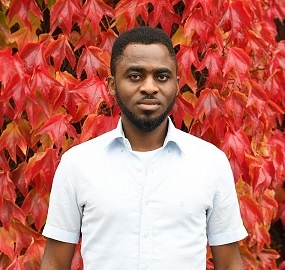
In 2010, I graduated with a Bachelor of Science (B.Sc.) in Degree in Statistics and Computer Science (Second Class Upper Division) from Federal University of Agriculture, Makurdi, Benue State, Nigeria. I then went onto work for agencies like BENSACA and Goft technologies as an Assistant Monitoring and Evaluation officer because of my interest in working with Data.
In September 2015, I obtained my Masters Degree from Loughborough University in Advanced Computer Science (with Distinction). During my Masters degree program, I developed a Vehicle 'make and model recognition system' using machine learning as the methodology. My Masters Degree thesis described how to develop an algorithm on Computer Aided Diagnosis on Total Hip-replacement Using X-ray Images. After my Master Degree Programme, I worked as a freelance I.T specialist. By 2017, I obtained a consulting position with VIPCG Corporate Development International Ltd. in Nigeria as an I.T Consultant.
In 2018 I enrolled in my PhD at the CDT-EI in Loighborough University to study Hand-drawn Cognitive Systems. The project aimed to develop a number of novel algorithms that were based on the recent developments in the technical/scientific area of Deep Learning / Convolutional Neural Networks in recognising offline handwritten text and hand-drawn objects. Such information can be used to gather intelligent information about the context in which a remote collaborative experience is being built. The intention was to use this novel technology to embed intelligence within modern and future interactive display surfaces and whiteboards.
I graduated in 2022 and I continue to work as a Computer Vision Engineer.
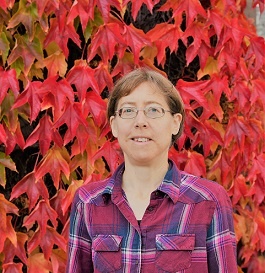
I graduated from Southampton University with an MEng in Aerospace Engineering in 2002. Following this, I worked as a mechanical engineer at Babcock International, eventually specialising in structural stress analysis. This involved hand calculations and building Finite Element models. I enjoy working out how to simulate a real-life situation using software. I am interested in how data can be collected to improve processes, increase efficiency and create a permanent record of the life of a product.
I graduated from my PhD studies at the CDT-EI in Loughborough University having researched Digital Twins Ontologies in 2023.
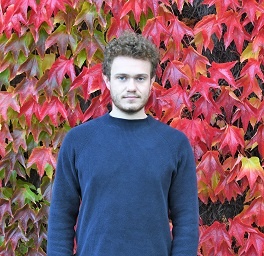
In 2018 I graduated first class from an integrated Master's degree in Automotive Engineering at Loughborough University. In support of my undergraduate studies I also undertook a year's placement at Caterpillar Industrial Power System's Division in Peterborough. The focus of my work was divided evenly between diesel engine validation planning/ reliability assessment and fuel system testing.
This experience (combined with a Master's thesis in machine learning pattern recognition) has instilled in me an appreciation for the abundance and utility of data. In no sphere of engineering is this more apparent than Powertrain testing, which is frequently untargeted and cumulative, resulting in vast amounts of underutilised but highly relevant data. With this in mind, my PhD research focused upon the potential of data mining and statistical learning techniques for complex pattern recognition in automotive test data, with an additional focus upon using machine learning to augment non-linear system modelling.
My PhD graduation is expected to take place in 2024.
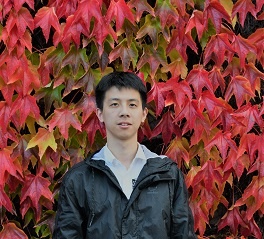
I studied measurement and control technology for the first three years of my undergraduate degree at Dalian Maritime University, China. I spent the final year of my undergraduate degree studying computer science at Loughborough University as part of the China Partnership Program. I then continued onto doing my Master’s degree in Computer Science at Loughborough and then I continued my PhD studies as part of the CDT-EI, from which I graduated in 2023.
My motto is: when your knowledge and ability cannot support your ambition, go to learn please.
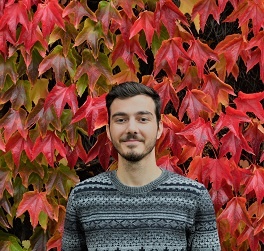
I graduated from Ozyegin University in Turkey with BSc degree for Electrical and Electronics Engineering as well as minor degree for Computer Science in 2017. During my undergraduate years, my main focus was on Logic Design using FPGA. After graduating from my BSc, I became involved with a research group called nEMESysLab at Ozyegin University and worked on advanced logic design and design automation problems in computer vision and image/video processing, more specifically, High-Level Synthesis based Logic Design for Sub-Pixel Interpolation.
The focus of my PhD research in at the CDT-EI in Loughborough University was to develop a framework for implementation of CNN’s as a dedicated hardware. I completed my PhD research and studies in 2022 and I graduated soon after that.
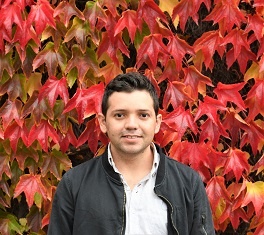
I received my Bachelor’s degree in Electrical Engineering in 2015 and my Master’s degree in Electrical Engineering in 2017 at the Federal University of Campina Grande, Brazil. From 2013 to 2015 I worked as a research student at the Brazilian Government Program Brazil-IP developing IP-Cores for a Power Line Communication and acquiring experience with Design (SystemVerilog and SystemC) and Verification (UVM) of ASICs, also working with EDA tools from Cadence and Synopsys.
I worked as a member of the Program of Excellence in Microelectronics (PEM) of the UFCG, generating digital content and attending classes for technical training in microelectronics. After completing my Master's degree, I joined the CDT-EI to study for a PhD degree co-sponsored by ARM Research. My research topics were Design and Verification of Digital Hardware and Electronic System Levels, Digital Signal Processing, Computer Vision and Machine Learning.
Before I had concluded my research work as a PhD student, my co-sponsoring company ARM employed me as a hardware engineer and I finished my PhD as a part-time student. I graduated in 2023.
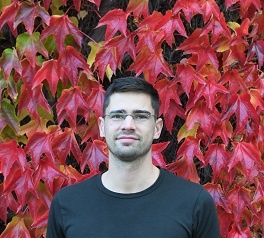
During his years as a competitive rower and in following amateur sport activities like Beach volleyball and Golf, Paul always used to keep one eye open for the technical analysis in the respective sport. After graduating in BSc Physics at the Humboldt-Universität zu Berlin, he followed this passion and attended the MSc Sports Engineering course at the Chemnitz University of Technology. For his Master’s project, Paul spent half a year abroad at the Centre of Sports Engineering Research at the Sheffield Hallam University, optimising the performance in cricket batting using a wireless inertial sensor.
Within his studies, Paul developed a particular interest in golf swing analyses. This background and ongoing interest in the topic took him to study it as part of his PhD co-sponsored by PING GOlf within the auspices of the CDT-EI. Paul combined optical measurement techniques into one high-speed system that allows to track golfer and club kinematics during the golf swing and to resolve mechanics of the clubhead-ball impact. Due to the potential high data quality and correlation, the system is useful to golf research institutions and golf club manufacturers to help investigating golfer-club and club-ball interactions.
Paul graduated in 2023 and now works as a software engineer at a company working on very similar topics to those of his PhD work.

I graduated in 2018 with a 2.1 Masters Degree in Physics from Durham University with a strong focus in Matter Physics. My Masters project involved using a microgranular gel as a printing medium/support structure for use in 3D printing. It was from this I found my interest in manufacturing.
The key objectives of my PhD with the CDT-EI project were:
· AI technology research, design and Proof of concept development related to AR/VR/MR/traceability/robotics/IIoT.
· Designing, implementing and testing of software products
· Write software to simulate the wireless communication standards, with special emphasis on 5G
· Integration of AI, processes and 5G solutions with advanced simulations
My PhD graduation is expected in Summer 2024.
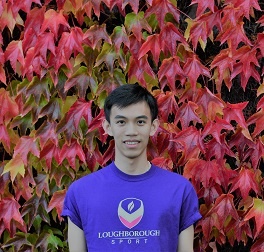
I completed my BSc degree in Cyber Engineering at Dalian University of Technology, China in 2017. As part of that I was offered an opportunity to study my final year in Loughborough University. After that, I graduated from Loughborough University in 2018 with MSc degree in Internet Computing and Network Security.
Both of my BSc and MSc projects focus on deep neural network applications, so my main research interests include embedded artificial intelligence, deep learning and underwater drones. I continued my studies as part of the CDT-EI and enrolled in a PhD degree.
The aims of my PhD project were to develop algorithms and software for enhancing the usability of underwater drones towards automation, and I was co-sponsored by Witted, a company that specialises in computer vision. These algorithms and software use latest technologies in Computer Vision, Artificial Intelligence and sensor fusion to achieve autonomous control for navigation and localisation tasks.
I graduated in 2023.
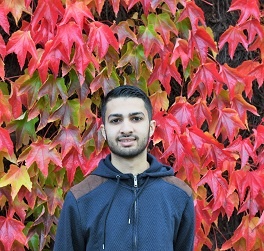
I completed my BEng in Electrical and Electronic Engineering at Heriot Watt University in 2018. During this degree I undertook a project involving wireless power transfer. This is where my interest in antennas began. My current research interests are in antenna design particularly around antenna arrays. In the past I have explored substrate integrated waveguide antennas.
My PhD project was co-sponsored by Leonardo UK and it was entitled “Intelligent Calibration of Active Antennas for Radar Applications”. The aims of the project were to investigate new innovative approaches for the self-calibration of antennas. Applications of my research outputs include radar, direction of arrival estimation and electronic beam steering with improved efficiency. Currently existing antenna array calibration techniques are very laborious and time consuming therefore there is a strong need for self-calibrating arrays, such as the research tool I contributed to develop.
I enjoyed the experience and my sponsors were very happy with my work. They offered me a job after I graduated and I have been working for them since Feb 2023.
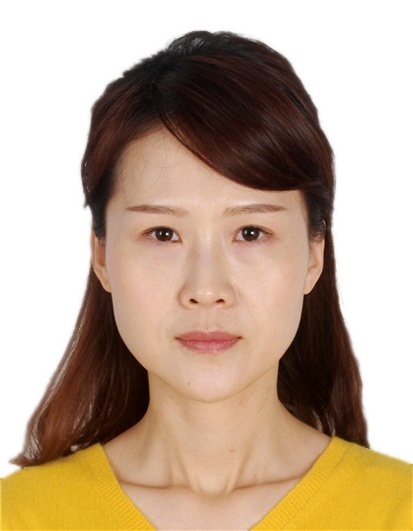
I gained my Masters degree in Electrical System Control and Information Technology at Southwest Jiaotong University, China in 2007. I became interested in doing a PhD in Loughborough University as part of the CDT in Embedded Intelligence when I was an an academic visitor in 2016.
My background is electrical engineering for buildings. Up until the start of my PhD I worked in the School of Architecture & Design, Southwest Jiaotong University, China as an Associate Professor for many years. My previous research areas were most of Energy Conservation Technology for Buildings, Electrical System Control and Information Technology, Intelligent Building Technology.
I have ten years of university teaching and experience in undertaking research. During my PhD I improved my knowledge on a myriad of topic, particularly those related to batteries, energy and simulation, and this will help me become a better teacher and advisor to my future students at my university.
My PhD graduation is planned for 2024.

Cesar Angeles is an Electronics Engineer, who studied for a PhD within the Institute of Sensors, Signals and Systems (ISSS) at the University of Heriot-Watt in the period 2018 - 2021. His research focused on the investigation and optimisation of the utilisation of pyroelectric devices for the acquisition, and rendering of data with machine learning algorithms for gesture applications.
Cesar graduated with a BSc (2014) from Iberoamericana University (Mexico City) in Electronics Engineering and Telecommunications working on a speech recognition system for voice signatures extraction and identification. He holds an MSc in Nanoelectronics and Nanotechnology (2015) from the University of Southampton (England, UK) with a thesis in the Modelling of Electrodynamics in Photonic Quasi-Crystals. Also, he has performed research activities in the characterisation and application of memristive nanodevices for reconfigurable electronics at the same University (2016).
His main interests range from novel device physics research as well as novel applications with them in embedded systems and machine learning. He is currently a researcher in the the integration of more zero to low-carbon distributed energy resources to the electricity grid to enable a low-carbon economy.
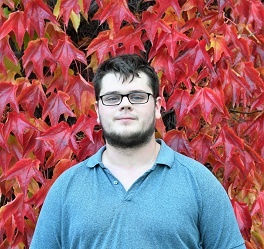
Jake attained a first-class BSc in Computer Science at Loughborough University in 2018. His final year project was focused on applying deep learning and computer vision methods to 2D sports data for the purpose of obtaining statistics and performance insights for further analysis.
In 2019, having gained invaluable skills in coding and programming, Jake decided to work as a freelance software developer and as a consultant working with companies in the financial sector to develop data management systems and improve data handling processes.

I graduated from the Polytechnic University of Madrid (UPM) with a 5-year degree in Telecommunications Engineering. Then I completed a MSc in System-on-Chip Design at the Royal Institute of Technology (KTH) in Stockholm, where I continued working as a researcher in the Mechatronics Department for 1 year following graduation. After that, I moved to China to work for a Spanish technology company, taking care of outsourcing, production and technology transfer for the company’s products.
In 2017 I enrolled on a PhD as part of the CDT in Embedded Intelligence at Loughborough University. Co-sponsored by Airquick Ltd., a company specialised in train washing, the project aimed to gain a better understanding of the processes involved, as well as defining a new methodology for evaluating the level of surface cleanliness.
In 2020 having acquired new skills and improved my programming language knowledge, I decided to move back to industry and I work as a Embedded Software Developer.
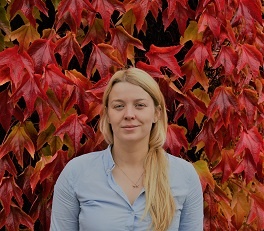
Jenny completed her MEng in Computer Science at the University of Southampton in 2012 and moved on to work in London as a software developer. After a range of roles and global experiences, she decided to return to her passion, research, at Heriot-Watt University.
Her project investigated the extent by which autonomous robotic systems may be trusted, in terms of their reliability and safety. Her goal was to create an algorithm to allow for greater confidence in a system’s dependable behaviour.
Having acquired invaluable coding and programming skills, along with her flair and self-motivation that made her highly employable, she became a Computer Scientist for a private corporation in 2020.
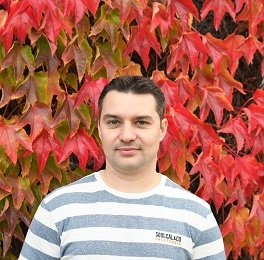
Matthew studied as a PhD Researcher as part of the CDT in Embedded Intelligence based at Heriot Watt University researching Prognostics and Health Management for Autonomous Systems. In 2019 he joined Cranfield University to pursue other research interests.
Prior to joining the Smart Systems Group at Heriot Watt University, Matthew had been working as a lead test and development engineer at Jaguar Land Rover developing the methodology and automation of vehicle aerodynamics and soiling tests.
He holds an MSc in Aerospace Dynamics from Cranfield University and a BEng in Aerospace Engineering from Southampton University.

Michael graduated with an MSc in Computer Science at Loughborough University in 2014.
He enrolled on a PhD degree entitled ‘Human-computer interactions within a car environment’, which intended to improve the usability and safety of cars while a user is interacting with it. His research was strongly motivated by his interests in alleviating, or, even, remove, the question of 'What do I do now' in a highly pressurised situation.
He continues to work on ergonomic aspects and human-machine interaction.
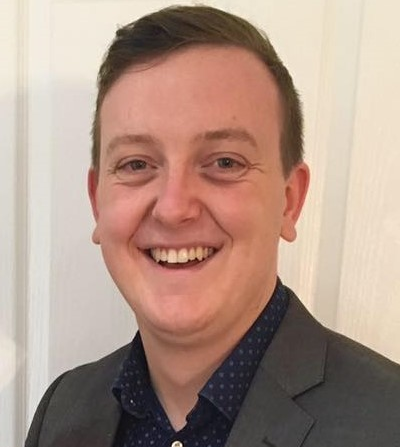
Nick began studying Electronic and Computer Systems Engineering at Loughborough University in 2012, however in the course of the first year, he became increasingly interested in engineering design processes, design lifecycles and integration between systems. This led him to changing course to Systems Engineering in 2013 where he gained a fundamental understanding of engineering process and design from a multi-disciplinary, holistic viewpoint - with secondary emphasis on the integration of mechatronic systems and control system design. This was cemented by an industrial placement working for the Requirements and Acceptance Team on the Type 26 Project at BAE Systems Naval Ships.
Nick continued his studies at Loughborough University, completing a Masters in Systems Engineering, working to expand his knowledge of systems architectures, system modelling, design lifecycles, requirement capture and validation & verification. His Masters thesis was entitled ‘Proving the Concept of Dynamic Substructuring Using a One Degree of Freedom Ball-Balancing Beam’, which involved applying a novel method of hardware-in-loop (HiL) testing to a simple experimental rig. This involved designing and applying both PID and state-space control, and applying this to the Dynamic Substructure (DSS) architecture, in addition to systems modelling and model validation. Subsequent work was applied to a PhD project, which gave Nick the opportunity to develop coding, software and programming skills that made him very empliyable.
During the scond year of his PhD at the CDT-EI he was head-hunted by a multinational and offered a systems engineer role which he could not refuse.
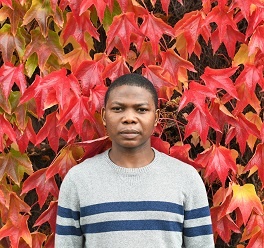
After attaining his Bachelor's degree in Electrical and Electronics from University of Ilorin, Nigeria, Olatunji worked for Interplan Engineers and Consultants in Lagos, Nigeria for two years.
He was awarded the NITDA scholarship for his Masters degree, which was in Information and Process System Engineering at the University of Surrey. His final project was on the Integration of Hydrogen Production and Wastewater Treatment. During his Masters, Olatunji worked with Cobbett Hill Earth Station where he gained hands-on experience on satellite communication and networking and continued to work with them after completing his Masters. He enrolled in the CDT-EI in 2018 to work on hybrid vehicles and departed shortly after to pursue other personal research interests.

Samantha graduated in June 2014 with an MEng in Electrical and Electronic Engineering degree from Heriot-Watt University.
Her Ph.D. title was Microwave Sensor for the Food Industry which is related to the design, manufacturing, and testing of a microwave sensor within this industry. The intention behind the project was that it would be part of the food processing lines with the intention to provide information with regards to the compositional change of product passing through the pipe.

Simon graduated from Loughborough University in 2017 with a BEng in Electronics and Computer Systems Engineering.
He was a NPFI student and benefitted from the training offered by the CDT in Embedded Intelligence.





